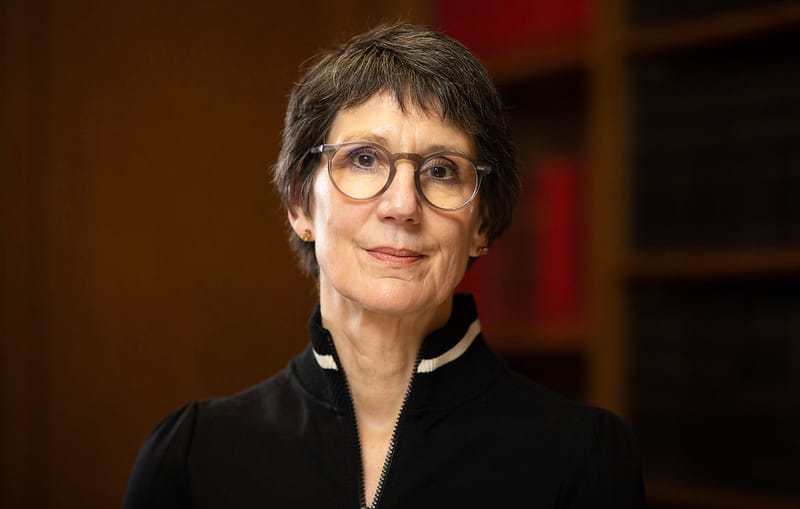Navigating Jewish Divorce in the United Kingdom
This article explores the legal framework governing Jewish divorce in the UK, the implications of Get refusal, the evolving recognition of religious coercion in domestic abuse law, the treatment of Jewish child arrangements in civil and religious contexts, and recent legislation and case-law.
While civil divorce in England and Wales is governed predominantly by the Matrimonial Causes Act 1973 and the Family Law Act 1996, Jewish divorce is governed by Halacha (Jewish law), which requires the granting of a Get, a religious bill of divorce administered by a Beth Din (Jewish ecclesiastical court). This dual system can create significant legal and emotional complications, especially when one party refuses to cooperate in the religious process. Moreover, child arrangements in Jewish families often involve additional layers of complexity due to religious expectations around education, identity and community affiliation.
This article explores the legal framework governing Jewish divorce in the United Kingdom, the implications of Get refusal, the evolving recognition of religious coercion in domestic abuse law, and the treatment of Jewish child arrangements in both civil and religious contexts. It also examines recent legislative developments and case-law, offering practical guidance for family law practitioners navigating these sensitive issues.
Under Jewish law, the marriage remains intact until a Get is granted. The Get must be written in Aramaic, specifically for the couple, and delivered by the husband to the wife in the presence of a Beth Din. Without a Get, the parties remain religiously married, and any subsequent relationship may be considered adulterous. Children born from such unions may be deemed mamzerim (illegitimate) under Orthodox Jewish law, with serious implications for their future within the community (particularly when it comes to their own marriage).
The Get process is highly ritualised and must be conducted in accordance with halachic requirements. It begins with the husband applying to the Beth Din, which oversees the drafting and delivery of the Get. The wife must accept the Get voluntarily; coercion can invalidate the process. The ceremony involves the husband physically handing the Get to the wife, symbolising the dissolution of the marriage. Upon completion, the Beth Din issues a P’tur, a certificate of Jewish divorce.
The refusal to grant a Get has increasingly been recognised as a form of coercive control. In short, it can be considered a form of domestic abuse under s 76 Serious Crime Act 2015, specifically coercive or controlling behaviour and under the Domestic Abuse Act 2021. This is because withholding a Get can be a tactic used to control or coerce a spouse, particularly a wife, after a civil divorce. The Domestic Abuse Act 2021 and its statutory guidance explicitly acknowledge that withholding a Get can constitute controlling or coercive behaviour, particularly when used to exert pressure over financial settlements or child arrangements. In 2022, an Orthodox man was jailed for refusing to grant his wife a Get. Judge Martin Beddoe handed the husband an 18-month sentence and ordered him to pay £11,000 in costs after hearing a guilty plea. Explaining the sentence, the judge said: ‘You sought to manipulate and control her all in the knowledge that it would substantially impact her mental health and in some respects also impact her physical health’.
This recognition marks a significant shift in the legal landscape. It allows victims of Get refusal, who are typically women, known as agunot (chained wives), to seek protection under domestic abuse legislation. In practice, however, enforcement remains challenging. The religious requirement for voluntary consent limits the ability of civil courts to compel compliance, and the Beth Din cannot override halachic principles. Nevertheless, the alignment of civil law with the lived experiences of agunot has empowered practitioners to frame Get refusal within the broader context of abuse, enabling access to protective orders and support services. It is important to note that a woman must accept the Get voluntarily and men can also be placed in a vulnerable position whereby their wife will not grant a Get.
In the case of Moher v Moher [2019] EWCA Civ 1482, [2019] All ER (D) 99 (Aug), Mr Moher was ordered to continue periodical payments to Mrs Moher until he granted her a Get. An order was additionally made under s 10A Matrimonial Causes Act 1973 to prevent the decree absolute being granted until a Get had been obtained. The judge reconciled English law and Jewish law in this regard (i.e. one cannot force a man to give a Get, or force a woman to accept a Get), as he confirmed his order did not compel the husband to obtain a Get, it was still his decision as to whether to give this. At [106] of the judgment the court confirmed:
‘An order clearly should not be made to punish the husband. Apart from that, I consider that the court has a general discretion to determine whether the particular circumstances of the case justify an order for periodical payments fixed to continue until the grant of a Get. There might, for example, be specific direct financial consequences or other factors which have sufficient indirect financial consequences to warrant the making of such an order. I also consider that the court is entitled to take into account that, absent a Get, the parties remained tied together. In N v N Wall J referred to the distinct, and what Professor Freeman called the “cataclysmic”, consequences for a woman if the husband fails to grant a Get.’
Several cases have highlighted the complexities of Jewish divorce within the UK legal system.
In Akhter v Khan [2020] EWCA Civ 122, the Court of Appeal addressed the recognition of Islamic marriages but offered broader commentary on the status of religious marriages under English law. The court reaffirmed that unregistered religious marriages are not legally valid, leaving parties without recourse to financial remedies under the Matrimonial Causes Act 1973. While the case did not involve a Jewish marriage, its implications resonate across religious communities, underscoring the importance of dual compliance with civil and religious requirements.
More recently, family courts have shown greater willingness to consider Get refusal in the context of domestic abuse. In F v M [2021] EWFC 4, the court found that the husband’s refusal to grant a Get constituted coercive control, contributing to a pattern of abuse. Although the court could not compel the Get, it used its findings to inform decisions on child arrangements and protective orders. This aligns with the court’s decision in Moher as mentioned above.
Child arrangements are governed by the Children Act 1989, which prioritises the welfare of the child. However, religious considerations often play a significant role in determining what constitutes the child’s best interests. The Beth Din courts may also offer mediation in child-related disputes, but their decisions are not legally binding unless incorporated into a consent order. Practitioners must therefore navigate the delicate balance between respecting religious values and upholding the paramountcy of the child’s welfare under civil law.
Jewish families may seek to preserve religious identity, education and community ties. Disputes may arise over issues such as kosher dietary practices, synagogue attendance or schooling. In Orthodox communities, continuity of religious observance is often viewed as essential to the child’s welfare.
While the civil courts do not enforce religious observance, they may consider the cultural and religious background of the child as part of the welfare checklist under s 1(3) Children Act 1989. In Re G (Children) (Religious Upbringing) [2012] EWCA Civ 1233, the court emphasised the importance of respecting the child’s religious heritage, particularly where both parents had previously agreed on a religious upbringing. This appeal arose from a judgment and order made in Willesden County Court concerning the residence and education of five children following the breakdown of the Jewish parents’ marriage.
The court stated at [27] and [35] that:
‘Evaluating a child’s best interests involves a welfare appraisal in the widest sense, taking into account, where appropriate, a wide range of ethical, social, moral, religious, cultural, emotional and welfare considerations. Everything that conduces to a child’s welfare and happiness or relates to the child’s development and present and future life as a human being, including the child’s familial, educational and social environment, and the child’s social, cultural, ethnic and religious community, is potentially relevant and has, where appropriate, to be taken into account. The judge must adopt a holistic approach … whatever the particular believer’s faith – is not the business of government or of the secular courts, though the courts will, of course, pay every respect to the individual’s or family’s religious principles. Article 9 of the European Convention for the Protection of Human Rights and Fundamental Freedoms, after all, demands no less. The starting point of the common law is thus respect for an individual’s religious principles, coupled with an essentially neutral view of religious beliefs and a benevolent tolerance of cultural and religious diversity.’
An important decision in J v B (Ultra‐Orthodox Judaism: Transgender) [2017] EWFC 4 addressed a case whereby a transgender parent (previously part of the Ultra-Orthodox Jewish community) applied to court for contact arrangements following the breakdown of their marriage and ostracisation from the Ultra-Orthodox Jewish community in North Manchester.
The father in this case is a transgender woman who left the family home in 2015 to live openly in her gender identity. Since then, she has been rejected by the Ultra-Orthodox Charedi community. The children, who were raised within this community, risk being ostracised if they maintain direct contact with the transgender parent.
At first instance, Peter Jackson J acknowledged that the community’s treatment of the father and children amounted to unlawful discrimination. He identified 15 reasons in favour of allowing direct contact. However, he ultimately denied the father’s application, concluding that the risk of the children and their mother being excluded from their community outweighed the benefits of contact.
In the first instance, the court ‘reached the unwelcome conclusion that the likelihood of the children and their mother being marginalised or excluded by the ultra-Orthodox community is so real, and the consequences so great, that this one factor, despite its many disadvantages, must prevail over the many advantages of contact’. In the first instance, the court ordered that the transgender parent have indirect contact only, with a course of life story work to explain their departure to the children. The transgender parent appealed, and the court found that the judge did not address ‘head on’ the human rights and discrimination issues that arose, and especially, that: ‘Even secluded religious communities within society are not above the law of the land’ (Re M (Children) [2017] EWCA Civ 2164).
This appeal has significant implications, not only for the family involved and the North Manchester Charedi Jewish community, but also for broader family law and anti-discrimination principles. At its core, the case raises a critical question: how should courts weigh a child’s welfare when that welfare is affected by discriminatory attitudes or behaviours, potentially in breach of Art 14 European Convention on Human Rights and the Equality Act 2010.
The Court of Appeal reviewed the evidence, including a testimony from a foster carer and a statement from Rabbi Oppenheimer, who argued that the children’s best interests required no direct contact with their transgender parent. The Rabbi also claimed that indirect contact would not lead to ostracism because it would not create a ‘living relationship’. The Court of Appeal disagreed with Peter Jackson J who concluded that the risk of exclusion from the community was so serious that it outweighed the advantages of contact with the father. The Court of Appeal allowed the appeal on three grounds. It focused particularly on issues of equality and discrimination. The court emphasised that:
- Judges must act as the ‘judicial reasonable parent’, applying the values of a modern, tolerant and pluralistic society.
- The law must protect minorities and ensure that human rights and equality are not just theoretical ideals but are actively upheld.
- There is a positive duty on judges to promote contact between children and their parents, even in difficult circumstances.
- The court criticised the original judgment for failing to confront the discriminatory behaviour of the community and for not fully addressing the human rights issues involved.
The Court of Appeal concluded that the children’s long-term best interests lie in maintaining a relationship with their father. It urged the courts not to give up on contact at this early stage in the children’s lives, stating: ‘The best interests of these children seen in the medium to longer term is in more contact with their father if that can be achieved … the court must … persevere. As the law says in other contexts, “never say never”’.
Practical guidance for practitioners when dealing with Jewish divorces
(1) Early identification: practitioners will need to ascertain whether the client’s marriage was religious, civil or both. If a Get is required, discussions should be initiated early in the process to avoid delays in the Final Order.
(2) Coordination with Beth Din: practitioners should establish contact with the relevant Beth Din and understand its procedures. Clients should be encouraged to engage with the religious process alongside civil proceedings. As a reminder, a civil divorce does not dissolve the religious divorce. There are multiple rabbinic courts (Beth Din) in England, not just one. Each major branch of Judaism has its own, with the London Beth Din or Federation being the best-known Orthodox authority. It is important to ascertain which Beth Din is applicable to your client.
(3) Addressing Get refusal: where Get refusal is an issue, practitioners should consider applying for a stay under the Divorce (Religious Marriages) Act 2002, which allows courts to delay making a decree absolute in divorce cases involving religious marriages until steps are taken to dissolve the religious union. This Act, specifically designed to address religious marriage complexities within divorce proceedings, ensures that both civil and religious aspects of the marriage are addressed. Practitioners may be able to frame, where relevant, the refusal within the context of coercive control where appropriate and explore protective measures under the Domestic Abuse Act 2021 and s 76 Serious Crime Act 2015, which has the offence of controlling or coercive behaviour in an intimate or family relationship.
(4) Child arrangements: practitioners should be sensitive to religious expectations around upbringing. Where disputes arise, involving religious mediators or incorporating religious provisions into consent should be considered. It should be remembered that in a child arrangements order, consideration should be given to the religious festivals and there needs to be provision for this in the same way a secular order may deal with Christmas or Easter, or including Eid where the parents are Islamic. On the Jewish Sabbath, for religious Orthodox couples, one cannot use a mobile phone or electronic devices. If handover is to take place on a Saturday for religious couples, consideration should be given as to how that handover is facilitated where there can be no electronic communication.
(5) Beth Din and arbitration: the Beth Din also plays a mediatory role in disputes, including those involving child arrangements. In English law, a Beth Din is not a recognised legal court, nor does it offer a parallel legal system. However, Beth Din rulings can be integrated into UK law if both parties freely agree and the decision is approved by civil courts. When acting as an arbitration tribunal, a Beth Din operates within the parameters of the Arbitration Act 1996, meaning its decisions can be binding if parties agree to arbitration and the award is enforceable under the Act. As practitioners are aware, it is a requirement in financial remedy or private law children proceedings for parties to consider non-court dispute resolution (NCDR) as a means of dispute resolution. This was reinforced in the case of NA v LA [2024] EWFC 113, where the judge ordered the parties to engage in NCDR before proceeding with court actions. Parties should consider whether the Beth Din is an appropriate forum for arbitration before any court proceedings.
(6) Charity organisations: there are a number of Jewish charities that can assist clients in difficult situations, including Jewish Women’s Aid and the London Jewish Family Centre. Signposting to relevant organisations should be considered at an early stage of instruction.






